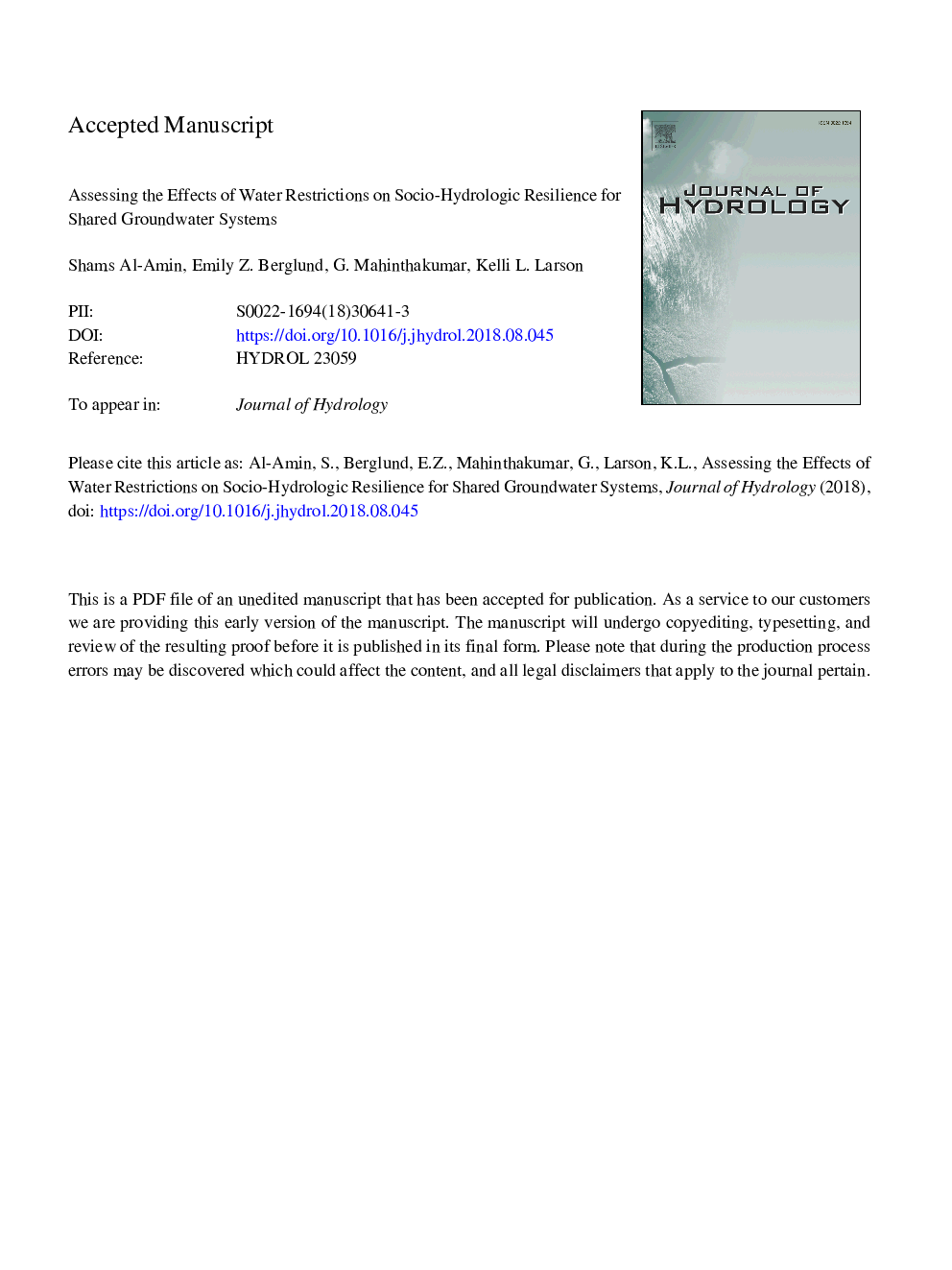| Article ID | Journal | Published Year | Pages | File Type |
|---|---|---|---|---|
| 11024777 | Journal of Hydrology | 2018 | 39 Pages |
Abstract
Groundwater resources are shared across management boundaries. Multiple management units that differ in scale, constraints and objectives may manage a shared resource in a decentralized approach. The interactions among water managers, water users, and the water resource components influence the performance of management strategies and the resilience of community-level water supply and groundwater availability. This research develops an agent-based modeling (ABM) framework to capture the dynamic interactions among household-level consumers and policy makers to simulate water demands. The ABM is coupled with a groundwater model to evaluate effects on the groundwater table. The framework is applied to explore trade-offs between improvements in water supply sustainability for local resources and water table changes at the basin-level. A group of municipalities are simulated as agents who share access to a groundwater aquifer in Verde River Basin, Arizona. The framework provides a holistic approach to incorporate water user, municipal, and basin level objectives in evaluating water reduction strategies for long-term water resilience.
Keywords
Related Topics
Physical Sciences and Engineering
Earth and Planetary Sciences
Earth-Surface Processes
Authors
Shams Al-Amin, Emily Z. Berglund, G. Mahinthakumar, Kelli L. Larson,
